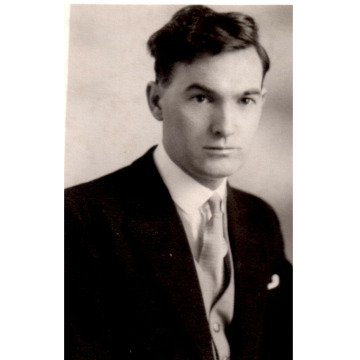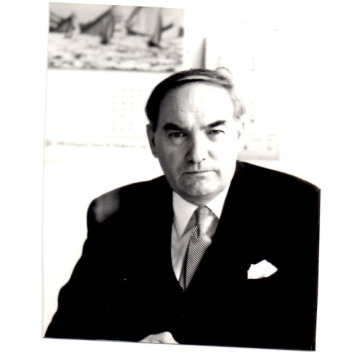This was another favourite poem of Fred's about the temporary nature of the impact of human beings on this vast earth.
Ozymandias
I met a traveller from an antique land
Who said: Two vast and trunkless legs of stone
Stand in the desert. Near them, on the sand,
Half sunk, a shattered visage lies, whose frown
And wrinkled lip, and sneer of cold command,
Tell that its sculptor well those passions read
Which yet survive, stamped on these lifeless things,
The hand that mocked them, and the heart that fed:
And on the pedestal these words appear:
'My name is Ozymandias, king of kings:
Look on my works, ye Mighty, and despair!'
Nothing beside remains. Round the decay
Of that colossal wreck, boundless and bare
The lone and level sands stretch far away.'
Percy Bysshe Shelley
I would respond to this more optimistically with a poem by
Brian Patten, who died only this week.
So Many Different Lengths of Time
'Cuanto vive el hombre por fin? Vive mil dias o uno solo?
Una semana o varios siglos? Por cuanto tiempo muere el hombre?
Que quiere decir 'para siempre'?
Preoccupado per este asunto me dedique a aclarar las cosas.'
Pablo Neruda
How long is a man's life, finally?
Is it a thousand days, or only one?
One week, or a few centuries?
How long does a man's death last?
And what do we mean when we say, 'gone forever'?
Adrift in such preoccupations, we seek clarification.
We can go to the philosophers,
but they will grow tired of our questions.
We can go to the priests and the rabbis
but they might be too busy with administration.
* * *
So, how long does a man live, finally?
And how much does he live while he lives?
We fret, and ask so many questions -
then when it comes to us
the answer is so simple.
A man lives for as long as we carry him inside us,
for as long as we carry the harvest of his dreams,
for as long as we ourselves live,
holding memories in common, a man lives.
(continued ...)
Stephanie X
04/10/2025






